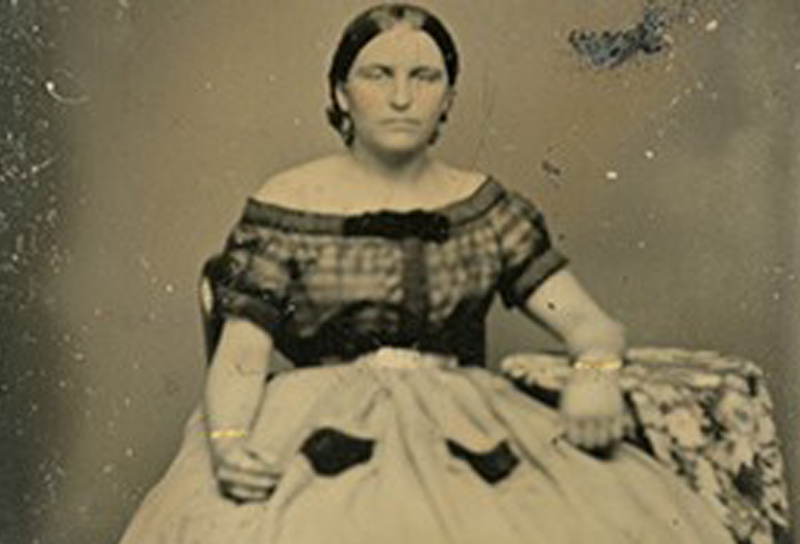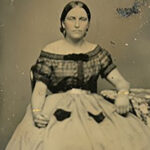
Fresh out of the courtroom, Sarah Craven Judge Williams has just succeeded in retaining what amounts to $2.9 million and hundreds of acres of land from her late husband’s estate — much to the dismay of his children. Within six months, she takes her third — possibly fourth — husband.
On September 7th, 1894, Sarah Williams marries Captain James A. Armistead.
Armistead was a decorated Civil War veteran, who had moved to Pinellas for the health of his first wife, Ollie, in 1885. When Ollie dies in 1893, he marries again, to Sarah. Using his experience working in real estate, he helps her manage her now-massive estate. From 1896 to 1900, he serves four terms as the mayor of St. Petersburg — something Sarah’s previous husband had been unable to achieve — before dying in 1907, and deeding Sarah with even more money and property.
While Armistead was still alive, Sarah worked with him to build a three-story opera house across the street from the Detroit Hotel. Over the years, this house would host traveling entertainment troupes like the ones Sarah had been a part of in her younger years. On occasion, she herself would even grace the stage for charity.
This is not her first construction project however. Before the death of her previous husband, John Williams, she had been the project manager for the erection of the Williams Methodist Episcopal Church in 1890. She was also involved in building the Williams Mansion in 1892, which later became part of the Manhattan Hotel, and still operates today as classroom and office space for USF St. Pete. The Armistead House off 3rd Ave N, which is long since demolished, was also built under her supervision.
Sarah becomes more involved in her community as well. In 1893, she becomes a founding member of the Women’s Town Improvement Association, whose first goal is to take the space that John Williams had originally platted to be a city park and make it a habitable, desirable place to gather. It is known today as Williams Park.
For an unknown number of years in the early 1900s, she also serves as the president of the local chapter of the Woman’s Christian Temperance Union, ironically on the opposite side of prohibition debate than her late husband, John Williams.
And, of course, she strategically sold and donated pieces of the Williams and Armistead land, both to individuals and to the city of St. Petersburg, for the benefit of public works.
The animosity between Sarah and the Williams children never seems to die down, however.
In 1900, Capt. Armistead and his son run into J. Mott Williams, one of John’s sons, in a grocery store. For reasons unknown, Armistead starts beating him with his cane while his son holds him down. Of course, they’re arrested and taken to court on charges of disturbing the peace. Armistead says, in essence, “You
can’t charge me, I’m the mayor.” To which the judge says something to the effect of: “I can and I will.” Armistead is fined $5, and his son $1 — a whopping $187 and $37.50 today.
But maybe the feud is one-sided. After all, Sarah’s son, Robert, ended up naming one of his children after John C. Williams. We may never know.
Because despite the mountains of newspaper mentions, the multiple marriages and legal battles, there is little we know about Sarah Armistead the person. Many of the stories that touch on her personality are either vague, seem like they might be exaggerated, or, in the case of her holding the straws that named St. Pete, fictions that have long been considered fact.
What we can say is this: Sarah Craven Judge Williams Armistead, the “Mother of St. Petersburg” died on December 14th, 1917 and was buried in Detroit, next to John Williams — with the equivalent of $3 million to her name.
After a long, bizarre life, maybe she’s allowed a couple of secrets.



